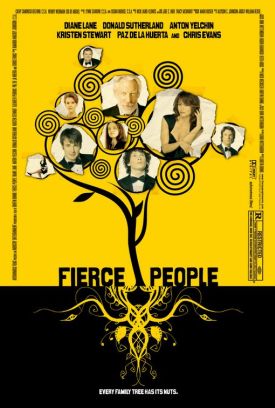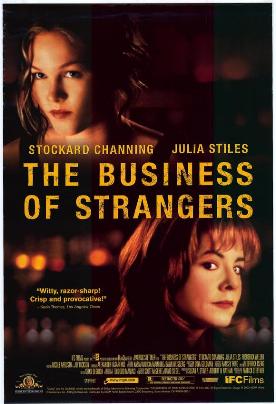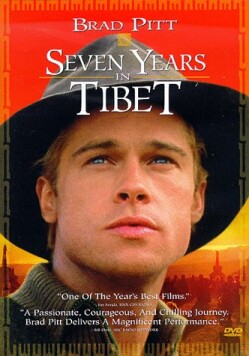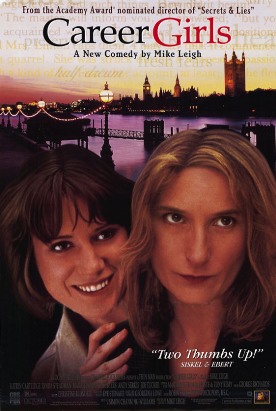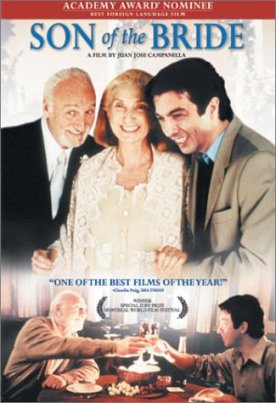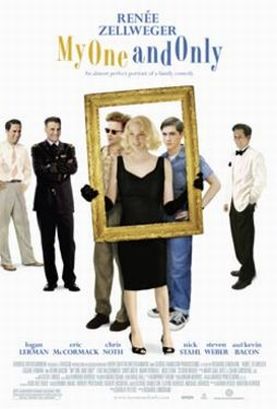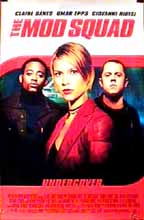Fierce People
The central conceit of Griffin Dunne’s Fierce People, adapted from his own novel by Dirk Wittenborn, is derived from that favorite liberal and multicultural principle that, underneath our superficial differences from even the most exotic or savage of the world’s peoples, we of the supposedly more advanced civilizations are really all just the same. And, in the case of particularly warlike savages, it’s our rich and powerful people who are just the same. Like any primitive tribe, they live without rule, without morality, without conscience or scruple towards those whom they must destroy in order to live as they please.
Do you think you can see where Messrs Dunne and Wittenborn are going with this?
Finn (Anton Yelchin) is a boy of about 17 who has never met his father, a famed anthropologist working among the primitive Ishkanani — the name means “fierce people” — in the South American jungle. One day, in the summer of 1980, his dad writes to invite Finn to do field work with him in the jungle. He’s excited about this, but before he can go he is busted in a drug raid as he attempts to buy drugs for his addicted mother (Diane Lane). He refuses to rat her out. But he suddenly finds himself bailed out by a billionaire called Ogden C. Osborne (Donald Sutherland), allegedly the seventh richest man in the world, whom mom, a masseuse, has met in the course of her work. Mr Osborne not only “takes care of” Finn’s drugs charge, but he offers both him and his mother a place to stay for the summer on his vast estate, Vlyvalle, in New Jersey.
We are never told exactly what business Osborne industries is in, apart from the fact that the old man “makes his pear brandy just the way they do in France.” Somehow I don’t think you get to be the seventh richest man in the world by doing that. But we are told where the Osborne fortune originated, and — just as Balzac said — it turns out to have been in a forgotten crime. Except that the crime is not forgotten but remembered proudly by Osborne himself. His father had employed his mother to seduce the owner of a telegraph company. Dad stole the company out from under the other man by blackmailing him with an incriminating photograph of the couple in flagrante — a photograph that he had taken himself.
It’s that touch of ruthlessness that seems most to impress old man Osborne and that sounds to me as if it would be something beyond even the bloodthirsty Ishkanani, but then I’m not an anthropologist.
At Vlyvalle, Finn is initiated into the ways of the sybaritic and conscienceless rich. He forms an attachment to old Mr Osborne and also to his grand-children, the comely Maya (Kristen Stewart), a girl of about his own age, and the manly Bryce (Chris Evans), who studied anthropology at Harvard and admires Finn’s dad, whom he calls “the Elvis of anthropology.” Bryce is the kind of preppy guy who goes in for hot-air balloon racing and who pays tribute to Finn — naturally a very cool teenager — by calling him “a gentleman and a scholar.” After a day or two he proclaims “lifelong friendship” for Finn and warm approval of his relationship with Maya. “Welcome to the tribe, brother,” he says. While Finn learns the ways of the tribe, mom joins AA and begins to get her life together. Old Osborne introduces her to the people of Vlyvalle as his doctor. When she protests, he says: “For ten square miles, I’m king. If I say you’re a doctor, you’re a doctor.”
All is going swimmingly until something terrible happens to Finn. Something Ishkanani terrible. Obviously, I have no intention of spoiling the movie for you by giving away the ending, but you would have to be the veriest innocent in the thinking of today’s movie culture not to know instantly who is going to turn out to be the bad guy. You can probably guess without even seeing the movie. The only question that remains, then, is whether or not Finn can learn from his studies of the Ishkanani how to take a condign revenge on this person and so redeem his nureshi, or tutelary spirit.
Yet here the film lacks the courage of its own left-wing convictions. I think it is way too glib to say that these highly sophisticated rich people are “really” just like the savage Ishkanani, but if you’re going to say that and if, further, you’re going to show dear little Finn becoming Ishkananized by them, and by what’s happened to him, then you’ve already cut him loose from the enlightened conscience and sense of social responsibility that commercial movie-makers, rightly or wrongly, think he has to retain in order to win the sympathy of the audience. There the movie loses its nerve, allowing Finn in the end to look down upon the Osbornes from a position of moral — and political — superiority, just as Mr Wittenborn himself does. I don’t know about you, but I’m not buying it.
Discover more from James Bowman
Subscribe to get the latest posts to your email.

